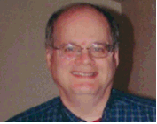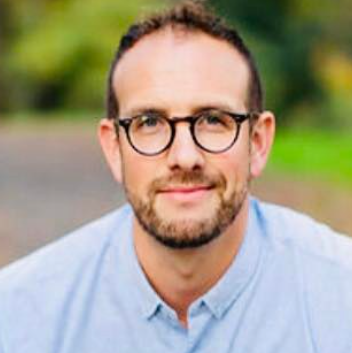Greetings, WesleyNexus Colleagues:
Happy new year! As I write those words, I am reminded of Ecclesiastes 1:9, “…there is nothing new under the sun.” We find ourselves again dealing with the scourge of another spike in COVID. I confess I’ve had moments this past week when it’s been difficult to feel enthusiastic about anything. Maybe you’ve had those moments, too. But, then I remember that it is precisely because of those moments—and a moment such as this—that the work of sharing Gospel Hope is so essential.
Another challenge that continues to persist is how perceptions of conflict between faith and science hurt the ministry of the church and contribute to the “drop out” problem— the loss of 60% of our young people from the church and the faith after the age of fifteen. We know that these perceptions of conflict form as early as age eleven and present real obstacles to faith formation, witnessing, and evangelism. That’s why the work of WesleyNexus to promote dialogue at the interface of science and faith also is so essential and goes hand-in-hand with our collective work to share Gospel Hope to a world in need.
Every issue of our newsletter highlights some of the latest topics and developments in the faith-science nexus. In this issue you will find…
- an upcoming training workshop, Faith, Science & Ministry, co-hosted by WesleyNexus and the Frederick District of the Baltimore-Washington Conference of the United Methodist Church;
- the upcoming webinar, Religions and Ecology, hosted by The Institute on Religion in an Age of Science;
- the upcoming webinar, God, Science, and the Pandemic with Lessons from John Donne with Philip Yancy, hosted by the American Scientific Affiliation;
- reading suggestions for 2022 from our own Rick Barr;
- and links to several thought-provoking articles.
We pray peace and good health for our world in 2022.
With you on the journey,
Jennifer Secki Shields, on behalf of the WesleyNexus team
****************************************************************************************************
UPCOMING EVENTS
Faith, Science, & Ministry:
How Perceptions of Faith-Science Conflict Diminish Our Ministry and What We Can Do About It
Saturday, February 12, 2022, 10:00 AM to 12:00 PM (Eastern Time) via Zoom
Hosted by the Frederick District of the Baltimore-Washington Conference (UMC) and WesleyNexus
Many pastors and churches assume that the faith-and-science dialogue is just an interesting academic discussion, unaware of how significantly it impacts the effectiveness of our ministry. Perceptions of conflict between faith and science contribute to the “drop out” problem—the loss of 60% of our young persons from the church and the faith after the age of fifteen—and present obstacles to faith formation, witnessing, and evangelism. This workshop will explore the challenges that we face in our mission and ministry as a result of the faith-science relationship and how we can meet those challenges within our already existing ministry areas (and budgets!).
To learn more, please contact Jennifer Secki Shields (connect@discoveryandfaith.org). Stay tuned for the registration link in next month’s newsletter issue.
****************************************************************************************************
Religions and Ecology: Restoring the Earth Community
Thursday, January 20, 2022, 4:00 PM Central Time (5:00 PM Eastern Time) via Zoom
Hosted by The Institute on Religion in an Age of Science
In this month’s Webinar, IRAS will host Dr. Mary Evelyn Tucker and Dr. John Grim, both of the Yale School of the Environment and the Yale Divinity School. The growing ecological crisis clearly requires the response of science and technology, economics and policy. These are necessary but not sufficient for solving the complex problems we are facing in envisioning a sustainable future for the Earth community. We will also need the participation of the world’s religious communities as we recognize the moral and spiritual implications of the diminishing life support systems of the planet. This talk will highlight some of the remarkable work being done within religious communities around the world to bring healing and restoration to people and land. While acknowledging the limitations of religions it will also note the promise for ethical and spiritual transformation regarding ecological attitudes and practices. This will be explored further in the new Yale/Coursera online classes that are designed for a general audience.
About the Presenters:
Dr. Mary Evelyn Tucker and Dr. John Grim hold joint appointments at Yale School of the Environment and Yale Divinity School where they have been developing the field of religion and ecology for over 25 years with many other partners. Grim and Tucker have written and co-edited a number of books which are foundational texts for these online courses. They include the Harvard Press series on Religions of the World and Ecology, Ecology and Religion, Routledge Handbook of Religion and Ecology, and the Orbis Books series on Ecology and Justice. They are also using Faith for Earth, a book created by the Parliament of World Religions and the United Nations Environment Programme. Tucker and Grim have previously launched another set of online courses with Yale named “Journey of the Universe: A Story for Our Times.” Those courses provide access to the Emmy Award-winning Journey of the Universe film, book, and conversations on the epic story of cosmic evolution and explore the influence of Thomas Berry, the cultural historian who inspired the field of Religion and Ecology and the Journey of the Universe project.
This webinar is free but registration is required, then follow the link to join the program.
To register:
https://us02web.zoom.us/webinar/register/WN_Jp6OrS7oT1edsz3ErDbVKw
****************************************************************************************************
God, Science, and the Pandemic with Lessons from John Donne
Saturday, January 29, 2022, 12:00 PM Eastern Time (9:00 AM Pacific Time) via Zoom
Hosted by the American Scientific Affiliation

The American Scientific Affiliation will host a public lecture with Philip Yancey, who will be addressing the foundational principles he has learned about suffering, supported by some of John Donne’s observations during a pandemic 400 years ago. Science has solved many of the problems that Donne faced in the seventeenth century, while Donne explored the existential questions that science still cannot answer.
Magnetism. Cosmology & astronomy. The biology of blood. Public health. Pastor and poet John Donne explored all these themes, writing as modern science was beginning to take shape 400 years ago. Across those 400 years, Donne speaks to our experience of the pandemic as Christians who care about science. Donne was the kind of pastor many scientists seek. He studied new discoveries in the natural world and the human body, and wove them into his pastoral work and his writing. A contemporary of Galileo and Francis Bacon, Donne avidly incorporated developing scientific knowledge into his work.
The lecture will be followed by a panel discussion and Q&A.
Feel free to invite your friends, family members, pastors, colleagues, and students. Consider a watch party in your home or church.
The cost of this webinar is free, but you are asked to please prayerfully consider a suggested donation of $25 to support the important work of the ASA.
To register: https://network.asa3.org/events/EventDetails.aspx?id=1571678&group=
****************************************************************************************************
Suggested Reading for 2022 by Rick Barr (WesleyNexus)

On this early January day, it is cold outside with a fresh covering of snow on the ground, powdery stuff that is easily blown from the high tree limbs in my backyard. I am thankful that my home is warm and the place where my family can be comfortable and safe. It offers me a little time to think about the coming year and anticipate how I shall spend my time. It won’t surprise anyone who knows me that my thoughts gravitate to what books I would like to read. Four authors with recently released or soon-to-be released books have grabbed my attention: John Haught, Thomas Oord, Philip Clayton and Katherine Keller.
Over 20 years ago, John Haught, then professor at Georgetown University, was gracious enough to sit down with me and discuss his work in science and religion. In many ways, it was that discussion that started my 20-years-plus avocation in the science and religion dialogue. When I received an email from him in December notifying me that he had two books recently written, one published and another to be available in March, I was delighted. The first, The Cosmic Vision of Teilhard de Chardin, returns to one of Haught’s formative influences, viewing him from a perspective of a lifetime of writing as a theologian and philosopher. The second, God after Einstein: What’s Really Going On in the Universe? tackles some of the core issues in science and religion. “In conversation with Einstein’s ideas and opinions, John F. Haught develops here a new cosmological understanding of the meaning of God, time, eternity, mystery, life, thought, freedom, and faith. In doing so, he offers readers a new way of understanding the relationship of science to theology”.
Thomas Oord is a thinker with whom I have engaged for a number of years now. A theologian within the Wesleyan tradition, Oord offers an understanding of both process relational thought and evangelical sensitivity. His earlier book, The Uncontrolling Love of God introduced me to what is known as Open/Relational Theology. His upcoming book (February), Pluriform Love, continues to develop themes introduced in Uncontrolling Love, furthering an understanding of the Open/Relational perspective emphasizing love as foundational to the Christian worldview.
Philip Clayton, along with John Haught, have been most influential in motivating me to spend a significant amount of my non-professional time over the last 20 years in learning about and promoting science and religion dialogue. In 2019, Clayton along with co-author Wm. Andrews Schwartz, published What Is Ecological Civilization?: Crisis, Hope, and the Future of the Planet, which “explores the idea of ecological civilization by asking eight key questions about it and drawing answers from relational philosophies, the ecological sciences, systems thinking and network theory, and the world’s religious and spiritual traditions. It concludes that a genuinely ecological civilization is not a utopian ideal, but a practical way to live. To recognize this, and to begin to take steps to establish it, is the foundation for realistic hope”. Phil Clayton was the IRAS webinar presenter in December, 2021 and can be found here: https://www.youtube.com/watch?v=TQK3cgVgRwo .
Lastly, Catherine Keller, who presented an IRAS webinar lecture in November on “Facing Apocalypse: Climate, Democracy, and Other Last Chances”, has written a book of the same name reflecting on how the last book in the New Testament, Revelations, can be read with new eyes, not as a literal text filled with predictions but as a book filled with thematic insights worthy of reflection in a world on the precipice of global climate change. Catherine Keller was the IRAS webinar presenter in November, 2021 and can be found here: https://www.youtube.com/watch?v=aKh00P-75Qs.
So here you have it, five books by four different authors. Books perhaps inclined more to disturb than provide soothing comfort. Each with its own perspective and form of realistic hope, I am looking forward with anticipation to sharing the journey with them.
****************************************************************************************************
What if Math Is a Fundamental Part of Nature, Not Something Humans Came Up With? by Clare Watson

“Back in 2015, scientists were also delighted to find a classic formula for Pi – the ever constant ratio between a circle’s circumference and its diameter – lurking in hydrogen atoms.
In a roundabout way, that discovery leads us back to the idea that mathematics provides a structural framework for the physical world. It’s an interesting idea to entertain – so long as your head doesn’t explode”.
https://www.sciencealert.com/the-exquisite-beauty-of-nature-reveals-a-world-of-math ****************************************************************************************************
How Disgust Explains Everything by Molly Young

(NY Times limited access to non-subscribers)
“These two types of human — which broadly map onto “liberal” and “conservative,” or “relatively disgust-insensitive” and “relatively disgust-sensitive” — live in separate moral matrices. If it seems bizarre that disgust sensitivity and politics should be so closely correlated, it’s important to remember that disgust sensitivity is really measuring our feelings about purity and pollution. And these, in turn, contribute to our construction of moral systems, and it is our moral systems that guide our political orientations”.
(Note from Rick Barr, WesleyNexus: Theologically, the New Testament metanoia offered by Jesus breaks through these disgust/purity walls to express love and compassion for all).
https://www.nytimes.com/2021/12/27/magazine/disgust-science.html?referringSource=articleShare
****************************************************************************************************
NY Times: Postcards from a World on Fire (Climate Change Effect by Country)
https://www.nytimes.com/interactive/2021/12/13/opinion/climate-change-effects-countries.html
****************************************************************************************************
This Moment is Ultimate, Too! An Interpretive Overview of Andrew Davis’ Mind, Value, and Cosmos by Open Horizons

(Note: the mission of Open Horizons is to explore” a process worldview and way of living in the world.”)
I do not write this “interpretive overview” for philosophers or theologians, but rather for the other ninety-nine percent of the world. I write for house painters, pediatricians, farmers, accountants, elementary school teachers, construction workers, single moms, single dads, grandparents, and teenagers who are absorbed in daily life and trying to find their way in a crazy yet beautiful world. Andrew Davis’ Mind, Value, and Cosmos can help us even if we haven’t the time to read the book, much less pay for it.
It is a “metaphysical work” in its way, dealing with questions of what is ultimately true and ultimately real. At first glance these may sound abstract or irrelevant, but they translate into basic questions we all ask, implicitly if not explicitly:
Given the actual circumstances of my life, with its pleasures and pains, its joys and sufferings, its anxieties and consolations, its healthy relationships and broken relationships, are there possibilities available to me that might help me respond in a constructive and creative way?
Are the people with whom I interact mere objects for me, or are they subjects of their own lives with minds of their own?
Is there something like mind or value in the world around me, too, including in the hills and trees, rivers and stars? Is the whole cosmos filled with things that are worthy of respect and care? Is there intrinsic value everywhere?
Is there anything in the universe – God – which is a companion to the whole of things and which can help guide us all?
Does all the power in the universe lie with this God, or do I myself have power and creativity, too?
Where does this creativity come from? Is creativity an ultimate reality, too?
What if all of them — God and the World, Mind and Value, Actuality and Possibility — are ultimate in their respective ways?
If so, would it be the case that, in some deep sense, relationality or interconnectedness is the ultimate of ultimates?
And where, if anywhere, might I experience all of these ultimates? Are they somehow present in each present moment?
Is the present moment ultimate, too?
These are the kinds of questions to which Andrew Davis points in Mind, Value, and Cosmos. The italicized words are Davis’ own oft-used words, used throughout his book. Granted, he does not frame the questions in just this way, because he is writing for specialists, especially for scholars in philosophy and theology who are a bit more preoccupied with what is real than in how to live. But I myself am a how-to-live kind of guy. In this interpretive overview I want to do my best to bring some of Davis’ ideas down earth all the while remaining true to his core insights. His book points us in the direction of a daily-life metaphysics which can benefit us all. And so does the video above, itself a trailer for the book. In the spiritual alphabet of humanity used in Open Horizons and also by the Cobb Institute (borrowed from Spirituality and Practice), “A” is for attention, “C” is for connection or relationality, and “Q” is for questing. You will sense from the video that Andrew Davis is a quester who invites us to pay attention to the worlds around us and within us, and to recognize the ultimacy of relationality, for our sakes and the world’s sake. In our time, unfortunately, an alternative yet dominant metaphysic reigns, itself the legacy of western modernity. This dominant worldview is a stale materialism that sees the universe as a collection of objects, not a communion of subjects. From the point of view of this worldview, value is but a creation of the human mind, and the mind itself is really but an epiphemenon, a burp, if you will, of brain chemistry, which consists of mindless particles in motion. We need to re-awaken to the communion, and Andrew Davis can help.
https://www.openhorizons.org/this-moment-is-ultimate-too-mind-value-and-cosmos-by-andrew-davis.html
